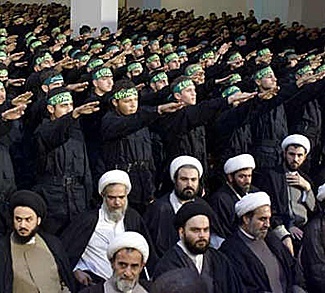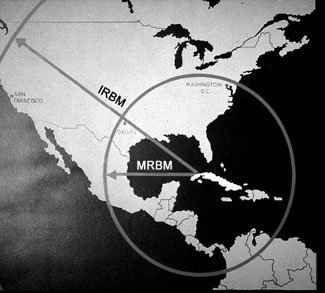FORECAST
Hezbollah, the militant group dubbed a terrorist organization by the U.S., Israel and Europe, may be poised to win the upcoming Lebanese parliamentary elections.
Lebanon goes to the polls on June 7th, and Hezbollah and its allies stand a good chance of emerging victorious, thereby tipping a nominally pro-U.S. government towards an anti-American posture. However, because of restrictive quota measures employed by the Lebanese, especially important after their civil war, Hezbollah will have to govern from a moderate position.
Lebanese electoral law splits the parliament in two, with half Christians, further split into Maronite, Greek Orthodox, Catholic, Armenian and Protestant, and half Muslims, further split into Shi’a, Sunni, Druze and Alawite. Under an unwritten rule that has never been broken, the Lebanese President must be a Christian (Catholic), the Prime Minister a Sunni, and the Speaker of the House a Shiite. The cabinet is further evenly split between Christians and Muslims.
Thus, if the Hezbollah coalition, which itself includes Christian parties, were to gain power, it would be constrained by a system that divides power with a number of checks and balances that appears greater than any other in the world today.
The quota system has worked to curb any one side from gaining disproportionate power. Last year, at the behest of the Americans, the pro-U.S. government moved to limit the military capabilities of Hezbollah. Hezbollah, in turn, routed pro-U.S. forces on the streets of Beirut, setting the stage for a unity government, headed by a Christian army general, that would have been more difficult had the in-built system of compromises not resulted in a unity government. In fact, Hezbollah insists that it is open to a unity government again, even if its coalition of allies wins the June 7th election.
That outcome is so threatening to American and Israeli interests that no less than the U.S. ambassador to Lebanon has warned of the very real possibility of Hezbollah forming the next government. The U.S. and Israel fear that a Hezbollah victory will strengthen the presence of both Syria and Iran in the region.
Thus, opponents of Hezbollah are feverishly warning that a Hezbollah democratic victory will lead to international sanctions against Lebanon, as Hamas’ democratic victory did the same vis-à-vis Gaza.
Nonetheless, unlike in Gaza, where a compliant Egypt assisted the Americans and Israel in blockading a tiny coastal territory, Lebanon is a full-fledged state with its own navy and access to international shipping routes, a friendly neighbour in Syria (itself a target of American and Israeli sanctions), which would no doubt continue to trade, and recipient of Russian arms, which would provide the necessary veto at the Security Council to rule out any such UN sanctions.
Ironically, a Hezbollah victory may end up achieving U.S. and Israel aims. As part of a democratically elected government, Hezbollah will face more pressure domestically to merge its armed militants with the Lebanese national army, and will have more incentive to do so since such a merger would give Hezbollah fighters access to Lebanese state weapons.
If such a scenario does come to pass, and Hezbollah forms the next government, it will no doubt be constrained from attacking Israel, just as Hamas unilaterally suspended all attacks against Israel after its own electoral victory (only renewing the same in the face of Israeli attacks). Thus, quite paradoxically, Israel may gain to benefit from Hezbollah forming part of the Lebanese government, and not existing outside of the establishment.
Yet it should be noted that if Hezbollah does gain victory on June 7th, the only two open democratic elections amongst Israel’s neighbours will fall to anti-Israeli militant groups, with Syria already being anti-Israeli and the main opposition to the Egyptian dictatorship also anti-Israeli, leaving only Jordan moderately pro-Israeli.
And with Israel’s newly elected government being a right-wing extremist coalition, expect the animosity between Israel and its neighbours to only escalate.
SUMMARY OF EVENTS: April 20 – 27, 2009
NORTH AMERICA
United States
A report by the Senate Armed Services Committee released Tuesday night says that torture techniques used at Abu Ghraib prison and approved by officials in the George W. Bush administration were applied only after soliciting a “wish list” from interrogators.
President Barack Obama Tuesday opened the door to prosecuting Bush-era officials who authorized terror interrogations seen by critics as torture, wading into a deep legal and political thicket.
A newly declassified narrative of the Bush administration’s advice to the CIA on harsh interrogations shows that the small group of Justice Department lawyers who wrote memos authorizing controversial interrogation techniques were operating not on their own but with direction from top administration officials, including then-Vice President Dick Cheney and National Security Adviser Condoleezza Rice.
US officials pressured Bank of America to complete a takeover of troubled investment firm Merrill Lynch last year after the banking giant wanted to back out, documents from a probe showed Thursday.
The Pentagon will soon release “hundreds” of photographs showing alleged abuse by US personnel at prisons in Iraq and Afghanistan during the Bush administration, a US official said Friday.
The Central Intelligence Agency must turn over records regarding detainee interrogation tapes the agency destroyed in an alleged effort to protect the identity of its officers.
SOUTH AMERICA
Bolivia
Leaders of Bolivia’s rightist opposition denied on Tuesday any links to an alleged plot to kill President Evo Morales, and condemned last week’s shooting of three suspected mercenaries by police.
EASTERN EUROPE
Georgia
Georgian opposition leaders said on Thursday protests demanding the president’s resignation were entering their “active” phase, threatening to block Mikheil Saakashvili’s movements in the capital.
Russia
Russia has not supplied new shoulder-fired surface-to-air missile systems to Venezuela, a Russian defense industry expert said on Monday.
Russia threatened on Monday to call off a meeting of senior military commanders with NATO next month if the alliance went ahead with planned exercises in ex-Soviet Georgia, Interfax news agency reported.
Chechen President Ramzan Kadyrov played down on Tuesday reports of impending terrorist attacks, saying the security situation in the south Russian republic remained stable and under control.
MIDDLE EAST
Iraq
Two suicide bombers wearing vests full of explosives blew themselves up in separate attacks on Thursday, killing 76 people, including many Iranian pilgrims, in what appeared to be Iraq’s bloodiest day in over a year.
Israel
Less than a month after an expert panel accused the defense establishment of “grave ethical failures” in testing an experimental anthrax vaccine on hundreds of soldiers, Israel Radio revealed Sunday that soldiers from the Duhifat Battalion were forced to participate in another experiment 15 years ago.
Israel had planned to attack and “destroy” the bulk of the Iranian Air Force fleet during a maneuver on April 17, Israel’s Debkafile claims.
EAST ASIA
North Korea
North Korea has announced that two detained female US journalists will stand trial for unspecified crimes, in a move seen by analysts as pressuring Washington for direct dialogue.
SOUTH ASIA
India
Maoist rebels in India briefly took hostage more than 300 train passengers Wednesday, police said, as the insurgents stepped up attacks during general elections.
Pakistan
Taliban militants in Pakistan’s Swat valley have moved into another district in a bid to broaden their control despite a deal designed to end extremist violence, officials said Wednesday.
Unidentified gunmen attacked Pakistani paramilitary troops who deployed on Thursday to a district virtually taken over by the Taliban, a day after Washington said Islamabad had abdicated to militants in the region.
Pakistan’s army chief on Friday insisted the military was ready for the threat posed by Taliban insurgents, saying its decision not to deploy in a militant-infested area was tactical.
Sri Lanka
The Sri Lankan government Monday gave the Liberation Tigers of Tamil Eelam (LTTE) 24 hours to surrender or face a “final assault”.
Thousands more civilians surged out of Sri Lanka’s war zone on Wednesday while soldiers and Tamil Tiger rebels fought the apparent endgame of Asia’s longest-running war despite calls to protect those still trapped.
Thailand
Thai Prime Minister Abhisit Vejjajiva said on Monday that he won’t negotiate with the convicted former prime minister Thaksin Shinawatra in a bid to end the political unrest in Thailand, Thai media said.
Thailand’s top army commander said on Thursday some of the bullets used in an assassination attempt on the leader of the “yellow shirt” protest movement came from an army training facility.
AFRICA
Egypt
The foreign ministry summoned an Iranian official on Tuesday after Iran criticised Egypt’s claim that it had arrested members of Lebanon’s Hezbollah for allegedly planning attacks in the country.
Lesotho
Lesotho Prime Minister Pakalitha Mosisili has survived an assassination attempt by attackers who planned to seize power, the government said on Wednesday.




